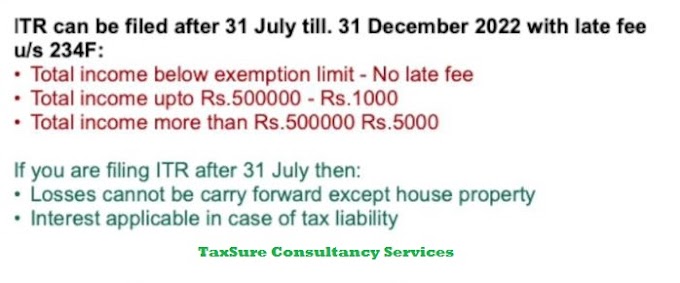The Central Board of Direct Taxes (CBDT) has notified the ITR forms – ITR-1 and ITR-4 for the assessment year (AY) 2020-21. These forms were notified on the 3rd of January 2020. This time the board has been very prompt in releasing the forms. It will help the taxpayers to be ready with all the requisite information and file their income tax returns with ease for FY 2019-20.
1. ITR-1
1. An individual with a brought forward/carry forward loss under the head ‘Income from house property’ can no longer use ITR-1 to file his/her income tax returns. ITR-1 form is not valid for individuals who have deposited more than Rs 1 crore in bank accounts or have incurred Rs 1 lakh or Rs 2 lakh on electricity or foreign travel, respectively.
2. A taxpayer who co-owns a house property is no longer allowed to file ITR-1 to report the income from the property. The sole owner of the property is required to fill this form.
3. In case the house property is rented out, the taxpayer will have to provide the name and PAN or Aadhaar of the tenant in the ITR-1.
4. A new disclosure has been added to Part A- General Information of ITR-1. Here, a taxpayer will have to disclose whether he/she has a valid Indian passport. If yes, he/she will have to provide the passport number.
5. The ‘Nature of Employment’ has been moved from Part A- General Information to B1 of Part B- Salary Schedule of ITR-1.
6. A separate column has been introduced under ‘Income from other sources’ for deduction u/s 57(iv) – in case of interest received on compensation or enhanced compensation under section 56(2)(viii).
2. ITR-4
1. A taxpayer who co-owns a house property is no longer allowed to file Form ITR-1 to report the income from the property. Only the income received from the property by the sole owner has to mention the amount in this form. Also, a taxpayer who has a brought forward/carry forward loss from ‘Income from house property’ cannot use ITR-4 to file his income tax return for FY 2019-20 onwards.
2. In case the house property is rented out, the taxpayer will have to provide the name and PAN or Aadhaar of the tenant in the ITR-4.
3. A new disclosure has been added to Part A- General Information of ITR-1. Here, a taxpayer will have to disclose whether he/she has a valid Indian passport. If yes, he/she will have to provide the passport number.
4. The additional details required by the income tax department from the taxpayers using ITR-4 in FY 2019-20 are as follows:
a. Has the taxpayer deposited an amount or aggregate of amounts exceeding Rs 1 crore in one or more current account during the previous year? If yes, the amount has to be reported.
b. Has the taxpayer spent an amount or aggregate of the amount exceeding Rs 2 lakh for travel to a foreign country for himself/herself or for any other person? If yes, the amount has to be reported.
c. Has the taxpayer incurred an expenditure exceeding Rs 1 lakh on the consumption of electricity during the previous year? If yes, the amount has to be reported.
5. In case ITR-4 is being filed by a representative, Aadhaar number of the representative is required to be provided in ITR-4 from FY 2019-20 onwards.
6. The taxpayers using ITR-4 will also have to disclose the following additional details in Part A- General information:
a. Whether the taxpayer is a partner of a firm? If yes, he will have to furnish the name and PAN of the firm.
b. Details of partners of the firm such as name, address, percentage of share in the firm, PAN, aadhaar number, rate of interest on capital and remuneration paid/payable.
7. The ‘Nature of Employment’ has been moved from the Part A- General Information to B1 of Part B- Salary Schedule of ITR-4.
8. The ‘Financial particulars of the business’ section of the ITR-4 has been replaced by “Particulars of cash and bank transactions relating to presumptive business”. Under this tab, the taxpayer will have to enter the opening balance of cash and bank (aggregate of all bank accounts), receipts during the year, and payments or withdrawals made in the previous year.
6. A separate column has been introduced under ‘Income from other sources’ for deduction u/s 57(iv) – in case of interest received on compensation or enhanced compensation under section 56(2)(viii).
3. Applicable to all forms
1. It is mandatory to file the income tax returns online for all the registered taxpayers, except for those who are above 80 years of age and do not have any income from business or profession.
2. Effective from 1 April 2017, if you do not file your return within the due date, there will be a levy up to Rs 10,000 under Section 234F. In fact, to emphasise on this, there is a field on the forms specifically to furnish details of fee payable under Section 234F in the returns.





0 Comments